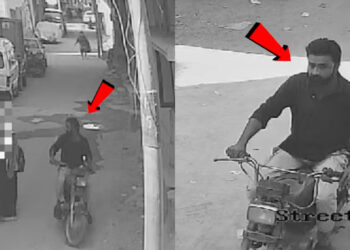![]() Follow Us on Google News
Follow Us on Google News
The Ministry of National Health Services (NIH) has released an advisory to help prevent and control the spread of Chikungunya across the country.
The advisory, distributed to health authorities nationwide, explains that Chikungunya is a viral disease caused by the Chikungunya virus (CHIKV) and transmitted to humans through the bite of Aedes mosquitoes.
According to Dr. Ruth Pfau Civil Hospital Karachi (CHK), the number of patients visiting the hospital’s emergency and outpatient departments has increased, with many suspected cases of Chikungunya, followed by dengue, malaria, and viral fevers. On average, around 50 cases of Chikungunya and dengue are being reported daily at the hospital’s emergency department.
What is Chikungunya?
The World Health Organization (WHO) describes Chikungunya as a mosquito-borne viral disease caused by the Chikungunya virus (CHIKV), an RNA virus belonging to the alphavirus genus of the Togaviridae family. The name “chikungunya” comes from the Kimakonde language and means “to become contorted.”
Transmission
The Chikungunya virus is primarily spread by Aedes mosquitoes, particularly Aedes aegypti and Aedes albopictus, which can also transmit dengue and Zika viruses. These mosquitoes are active during the day and lay eggs in containers with stagnant water. Aedes aegypti mosquitoes feed both outdoors and indoors, whereas Aedes albopictus feed mostly outdoors. When an uninfected mosquito bites a person with the virus in their bloodstream, the mosquito becomes a carrier.
Symptoms
Symptoms of Chikungunya typically appear 4–8 days after the bite of an infected mosquito but may range from 2–12 days. The disease usually begins with a sudden fever, often accompanied by severe joint pain, which can be debilitating and last from days to weeks or even longer. Other common symptoms include joint swelling, muscle pain, headache, nausea, fatigue, and rash.
Treatment and Vaccines
There is no specific antiviral treatment for Chikungunya. Clinical management focuses on reducing fever and joint pain with the use of antipyretics and analgesics, staying hydrated, and resting. The best form of protection is preventing mosquito bites.































